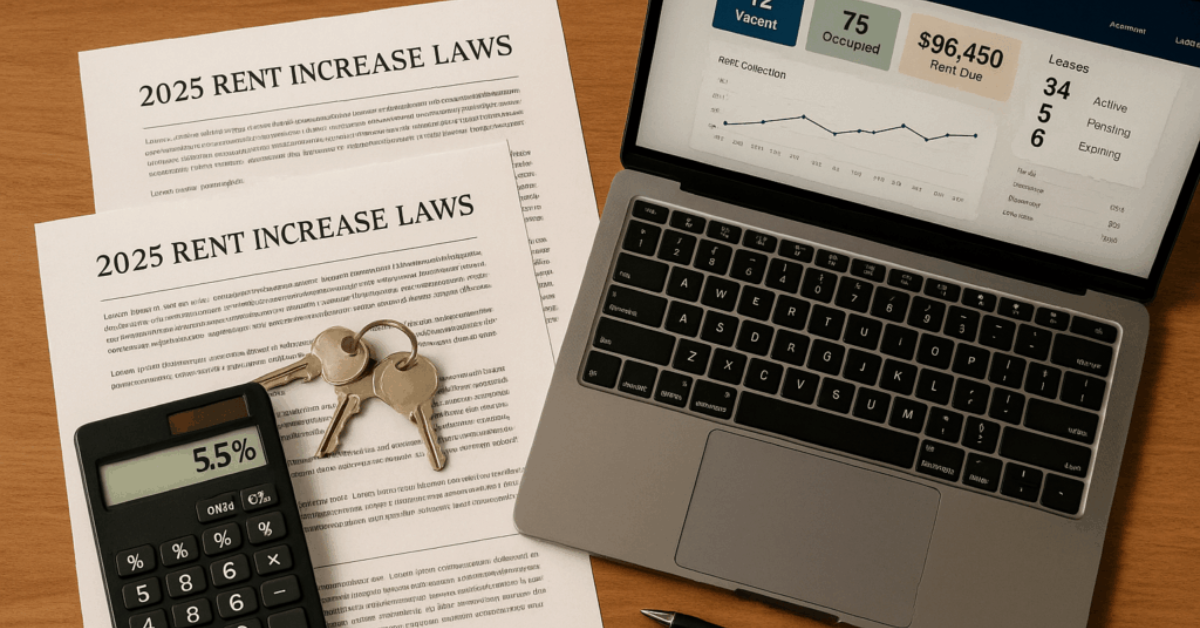
Understanding rent increase laws in Kentucky is essential for tenants, especially as we move into 2025. With rising living costs, many renters want to know how much their landlords can raise rent and what protections they have under the law. This article will break down the important rules and tenant rights to help you stay informed and prepared.
Kentucky’s rent laws often confuse tenants because there is no statewide limit on how much a landlord can raise rent. However, tenants still have certain rights and notice requirements that landlords must follow. By knowing these details, you can avoid surprises and handle rent increases more confidently in 2025.
What Does Kentucky Law Say About Rent Increases?
In Kentucky, there is no legal cap on how much a landlord can raise the rent. This means landlords can increase rent by any amount as long as they provide proper notice before the increase takes effect. The notice period is generally at least 30 days for month-to-month leases, according to the Kentucky Revised Statutes (KRS 383.595).
This law offers tenants some time to prepare for rent increases or find alternative housing if needed. For leases with a fixed term (like one year), landlords typically can’t raise rent until the lease expires unless the lease agreement specifically allows it.
How Much Notice Must Landlords Give Before a Rent Increase?
Landlords in Kentucky are required to give tenants at least 30 days’ written notice before increasing rent on a month-to-month lease. The notice must clearly state the new rent amount and the date the increase will start.
This rule helps tenants plan their finances better and avoid sudden rent hikes. If proper notice is not given, tenants have the right to refuse the rent increase until they receive official communication.
Are There Any Exceptions or Special Rules?
Some cities or counties in Kentucky might have their own additional tenant protections, so it is important to check local laws.
Additionally, if your rental is part of a government-subsidized housing program, different rent increase rules might apply. For specific programs such as those overseen by HUD, tenants usually have increased protections against large or sudden rent hikes.
What Can Tenants Do If They Think a Rent Increase is Unfair?
If a tenant believes a rent increase is illegal or unfair, the first step is to review the lease terms and local laws carefully. Tenants can then communicate with their landlord to negotiate or request to delay the increase.
Legal assistance or tenant advocacy groups in Kentucky can provide support and advice. For example, organizations like the Kentucky Housing Corporation offer resources to help renters understand their rights.
Understanding Lease Agreements and Rent Control
Kentucky currently does not have statewide rent control. This means there is no legal limit on increasing rent when a lease is renewed or if you rent month-to-month. The best protection is to carefully read your lease contract before signing.
If your lease specifies when and how rent can be increased, then those terms must be followed by the landlord. Tenants should keep copies of all written communications related to rent changes for their records.
Tenant Rights During Eviction and Rent Changes
Even if your landlord increases rent, they cannot evict you without proper legal procedures. Kentucky requires landlords to provide written notice if they want to terminate a lease. If a tenant cannot pay increased rent, eviction usually requires a formal court process.
Renters should know their rights to avoid wrongful eviction or illegal rent practices. The Kentucky Tenant Union or legal aid services provide useful information on housing and eviction laws.
Final Tips for Kentucky Tenants Facing Rent Increases
Stay informed about your lease terms and Kentucky rental laws. Always request written notice for any changes in rent. Keep open and respectful communication with your landlord to negotiate if rent increases are difficult for you.
Seeking help from local tenant organizations or a legal advisor can protect your rights and help you understand the best actions to take. Remember, being proactive and informed is your best defense in managing rent changes in 2025.








